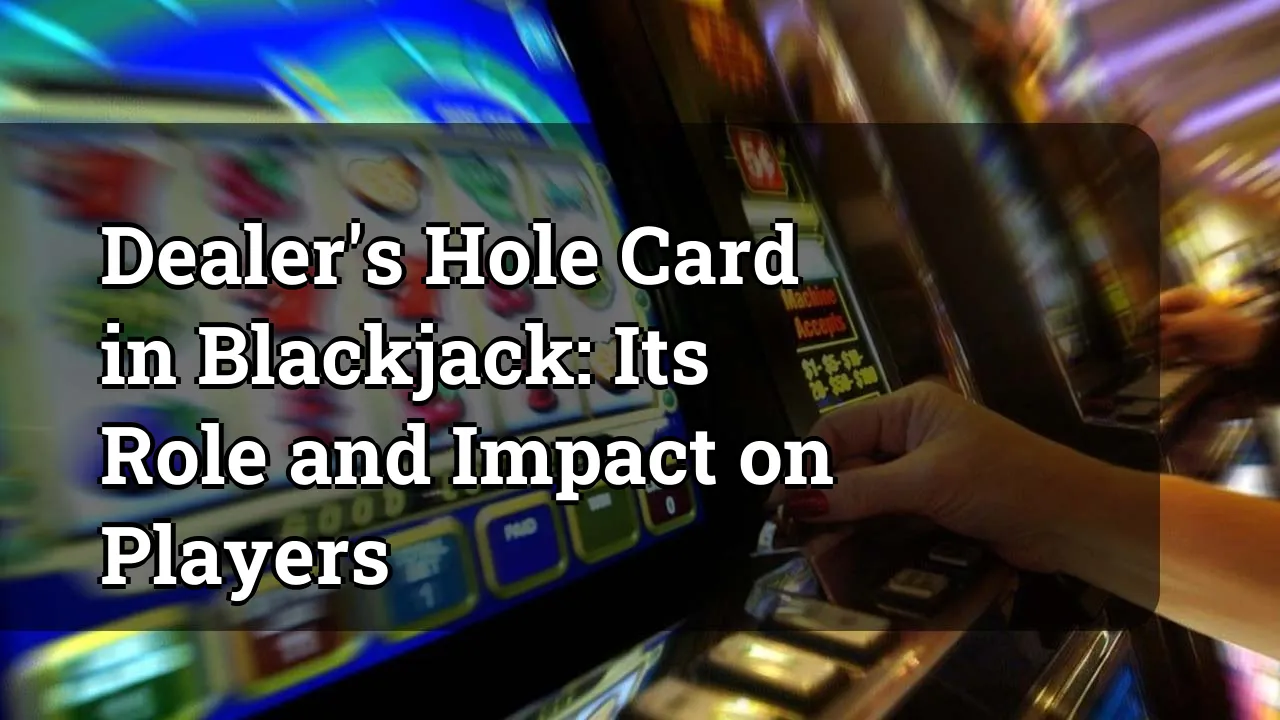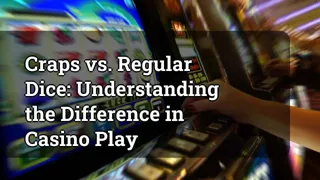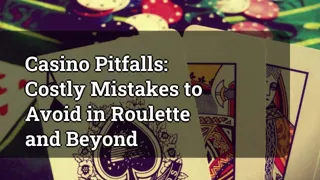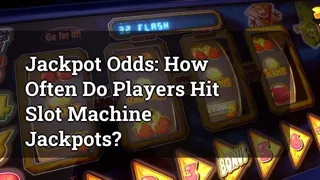Dealer's Hole Card in Blackjack: Its Role and Impact on Players

In the game of blackjack, the dealer's hole card plays a crucial role in determining the outcome of each hand. Understanding the significance of the dealer checking for a potential blackjack can help players make more informed decisions and improve their chances of winning. In this article, we will explore the reasons behind the dealer's actions and the impact it has on players.
Firstly, let's clarify what a hole card is. In blackjack, each player is dealt two cards face-up, while the dealer receives one card face-up and another card face-down, known as the hole card. The hole card remains unseen by the players until the dealer reveals it at the appropriate time.
The reason why the dealer checks for a blackjack by peeking at their hole card is to determine whether they have a winning hand without needing to play out the entire hand. A blackjack occurs when the dealer's initial two cards comprise an Ace and a ten-value card (10, Jack, Queen, or King). If the dealer has a blackjack, all players who do not also have a blackjack automatically lose their bets.
In this scenario, players have the option to take insurance, which is a side bet that pays out 2:1 if the dealer indeed has a blackjack. By offering insurance, the casino aims to entice players into making this additional bet, hoping to capitalize on their fear of losing their initial wager.
However, it's important to note that taking insurance is generally considered a poor strategy for players. The reason is simple - statistically, insurance is an unfavorable bet in the long run. The odds of the dealer having a blackjack are relatively low, and the payout for insurance is not sufficient to offset the risk.
Here's an example to illustrate this point. Suppose you are playing a game of blackjack and you have a total of $100 on the table. The dealer reveals an Ace as their up-card, prompting them to offer insurance. The insurance bet is typically half the amount of your original wager, so in this case, it would be $50.
If you take insurance and the dealer indeed has a blackjack, you win the insurance bet and receive a payout of $100 ($50 x 2). However, you lose your original $100 bet, resulting in a net loss of $0. On the other hand, if you decline insurance and the dealer does not have a blackjack, you have the opportunity to play out the hand and potentially win or push, keeping your original bet intact.
By not taking insurance, you give yourself a better chance of winning in the long run. The dealer's hole card serves as a valuable piece of information that can aid players in making calculated decisions rather than relying on luck or intuition.
To summarize, the dealer's hole card in blackjack plays a vital role in determining the presence of a potential blackjack. While the option of insurance may seem tempting, it is generally not recommended as a profitable strategy. Instead, players should focus on employing basic blackjack strategy and making informed decisions based on the visible cards on the table. By understanding the role and impact of the dealer's hole card, players can enhance their overall blackjack experience and increase their chances of success.











